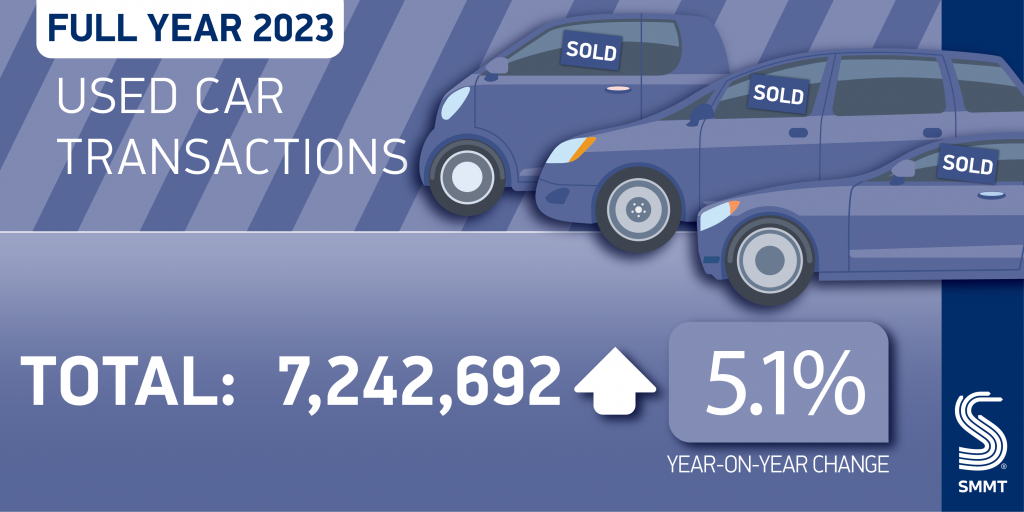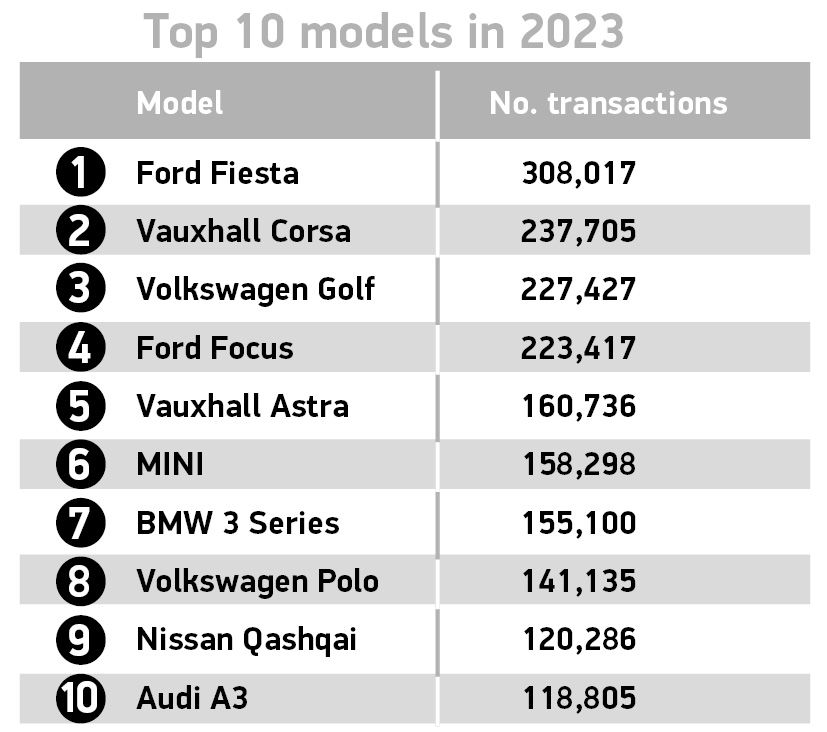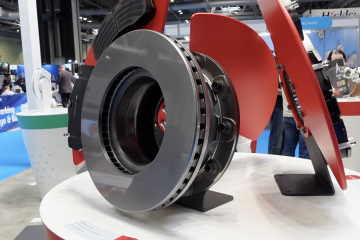Easing supply constraints and a desire for cheaper motoring led the UK used-car market to record four consecutive quarters of growth in 2023, ending the year on a high.
The latest data from the Society of Motor Manufacturers and Traders (SMMT) shows that transactions grew by 5.1% across the year, with 7,242,692 passenger cars changing hands on the UK used-car market. This means that 351,915 more drivers took to the road in a second-hand car in 2023. In the fourth-quarter alone, transactions grew by 6.9% to reach 1,679,116 units.
The figures suggest the UK used-car market is buoyant once again after years of disruption. Yet the figures are not quite as high as may be expected, especially with used-car supply once again in good health. With the UK car parc not depleting, it is likely that drivers are holding onto their vehicles for a little longer.

In 2022, supply-chain issues in the new-car market caused problems in the UK used-car market. Drivers who were unable to buy a new car, or whose cars were delayed on the production lines, kept their existing models for longer. This meant a shortage of used-cars for those looking to buy second-hand to take advantage of.
It is likely that numbers will continue to improve in 2024. The new-car market is forecast to grow, and this leads to even more used-cars available for purchase.
Beware the BEV
Across the UK used-car market in 2023, battery-electric vehicle (BEV) transactions almost doubled, rising by 90.9% to a record 118,973 units.
This only equates to a 1.6% share of the overall UK used-car market in the year; however, this is an increase on the 0.9% hold in 2022. The SMMT highlights that the rise is in line with increases in the new-car market, and demonstrates “keen demand for zero-emission motoring in this naturally more affordable price bracket.”
While the number may not sound as impressive compared to the total figure, it does highlight that the issue of de-fleeting is one that needs to be considered, especially by the independent aftermarket. Most fleets will get rid of their stock after three years, rather than fund them through the MOT and subsequent repairs.
Taking this into account, we need to look back to 2020 and the new-car registrations of that disrupted year. Across the whole 12 months, 108,205 BEVs were registered. This is almost in line with the 2023 UK used-car market transactions for BEVs. While a number of these transactions will have been made by private sellers, the figures are close, and suggest that as the years roll on, an increased number of BEVs will come into the UK used-car market, where they will likely be taken into independent garages for their servicing requirements.
This means that by 2026, there could be around 772,617 BEVs having entered the UK used-car market, as they hit three-years of age.
There is also the hybrid and plug-in hybrid (PHEV) market to consider. In 2023, sales of these models in the used-car market were also strong, up by 40.0% and 25.1% respectively and, collectively, electrified vehicles represented 5.6% of the market, up from 4% in 2022.
“A healthy new car market is key to driving choice in the used sector and it is great to see record numbers of second and third owners benefitting from the growing availability of electric vehicles,” commented SMMT Chief Executive Mike Hawes. “The demand is there, but to sustain it we must enable every motorist to make the switch.
“The upcoming Budget is a prime opportunity for government to do just that – halving VAT on new EVs, while making public charging as easy and affordable as plugging in at home, would ensure a faster and fairer transition for all, giving the UK a green economic boost.”
Is a diesel decline looming?
Diesel and petrol, however, remained the most dominant fuel types, with a total of 6,827,466 units changing hands, amounting to 94.3% of the overall market.
Petrol transactions improved by 4.5%, while diesel bucked the trend seen in the new-car market and improved by 2.1% year-on-year. This indicates that there is still a demand for diesel in the UK used-car market.
However, there could be a looming crisis ahead for diesel, and it is all related to supply, once again. As numbers wilt in the new-car market, and fleets especially turn to hybrids and BEVs, there will be a shortage of diesel models coming into the used-car market. Buyers who want this powertrain will struggle to find newer models, while older models will either be held onto by their owners, or will come to the end of their life.
Diesel’s market share dropped year-on-year in 2023. By the end of December 2022, the powertrain held 39.1% of the UK used-car market, yet this had dropped to 38% just 12 months later. This is continuing a trend of recent years, and is likely due to lack of supply rather than wilting demand.
But this also presents an opportunity, with diesels getting older and drivers holding onto them, their servicing requirements will be as important as always. Diesels are still being sold today, even if their numbers are dropping. Last year, the technology only just held off PHEVs, with 0.1% more market share, to prevent it ending up as the lowest-selling powertrain type in the UK. This is an unwanted position it will likely take in 2024.
Back to black for UK used-car market
The Ford Fiesta, recently discontinued, topped the best-seller list in the UK used-car market for 2023. The popular Ford was comfortably ahead of the Vauxhall Corsa in second, and the Volkswagen Golf in third.

Superminis once again proved the most popular used car body type, accounting for one in three (32.1%) sales in the year. They were followed closely by cars in the lower medium segment, which took 26.6% of the market, and dual-purpose vehicles (15.2%). The smallest volume segment was luxury saloons, representing just 0.5% of transactions.
Bucking the grey trend in the new market, black cars were the most popular used purchases, with more than 1.5 million buyers (21.4%) choosing the colour. Grey, however, increased its ranking, displacing blue to take second place. At the niche end of the spectrum, 4,870 buyers opted for pink, while 4,686 cream cars found new owners, and maroon represented 4,585 transactions.




You must be logged in to post a comment.